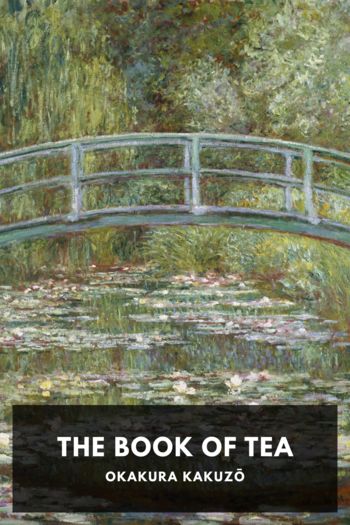Doctor Thorne Anthony Trollope (best english books to read for beginners txt) 📖

- Author: Anthony Trollope
Book online «Doctor Thorne Anthony Trollope (best english books to read for beginners txt) 📖». Author Anthony Trollope
The two eldest, Augusta and Beatrice, lived, and were apparently likely to live. The four next faded and died one after another—all in the same sad year—and were laid in the neat, new cemetery at Torquay. Then came a pair, born at one birth, weak, delicate, frail little flowers, with dark hair and dark eyes, and thin, long, pale faces, with long, bony hands, and long bony feet, whom men looked on as fated to follow their sisters with quick steps. Hitherto, however, they had not followed them, nor had they suffered as their sisters had suffered; and some people at Greshamsbury attributed this to the fact that a change had been made in the family medical practitioner.
Then came the youngest of the flock, she whose birth we have said was not heralded with loud joy; for when she came into the world, four others, with pale temples, wan, worn cheeks, and skeleton, white arms, were awaiting permission to leave it.
Such was the family when, in the year 1854, the eldest son came of age. He had been educated at Harrow, and was now still at Cambridge; but, of course, on such a day as this he was at home. That coming of age must be a delightful time to a young man born to inherit broad acres and wide wealth. Those full-mouthed congratulations; those warm prayers with which his manhood is welcomed by the grey-haired seniors of the county; the affectionate, all but motherly caresses of neighbouring mothers who have seen him grow up from his cradle, of mothers who have daughters, perhaps, fair enough, and good enough, and sweet enough even for him; the soft-spoken, half-bashful, but tender greetings of the girls, who now, perhaps for the first time, call him by his stern family name, instructed by instinct rather than precept that the time has come when the familiar Charles or familiar John must by them be laid aside; the “lucky dogs,” and hints of silver spoons which are poured into his ears as each young compeer slaps his back and bids him live a thousand years and then never die; the shouting of the tenantry, the good wishes of the old farmers who come up to wring his hand, the kisses which he gets from the farmers’ wives, and the kisses which he gives to the farmers’ daughters; all these things must make the twenty-first birthday pleasant enough to a young heir. To a youth, however, who feels that he is now liable to arrest, and that he inherits no other privilege, the pleasure may very possibly not be quite so keen.
The case with young Frank Gresham may be supposed to much nearer the former than the latter; but yet the ceremony of his coming of age was by no means like that which fate had accorded to his father. Mr. Gresham was now an embarrassed man, and though the world did not know it, or, at any rate, did not know that he was deeply embarrassed, he had not the heart to throw open his mansion and receive the county with a free hand as though all things were going well with him.
Nothing was going well with him. Lady Arabella would allow nothing near him or around him to be well. Everything with him now turned to vexation; he was no longer a joyous, happy man, and the people of East Barsetshire did not look for gala doings on a grand scale when young Gresham came of age.
Gala doings, to a certain extent, there were there. It was in July, and tables were spread under the oaks for the tenants. Tables were spread, and meat, and beer, and wine were there, and Frank, as he walked round and shook his guests by the hand, expressed a hope that their relations with each other might be long, close, and mutually advantageous.
We must say a few words now about the place itself. Greshamsbury Park was a fine old English gentleman’s seat—was and is; but we can assert it more easily in past tense, as we are speaking of it with reference to a past time. We have spoken of Greshamsbury Park; there was a park so called, but the mansion itself was generally known as Greshamsbury House, and did not stand in the park. We may perhaps best describe it by saying that the village of Greshamsbury consisted of one long, straggling street, a mile in length, which in the centre turned sharp round, so that one half of the street lay directly at right angles to the other. In this angle stood Greshamsbury House, and the gardens and grounds around it filled up the space so made. There was an entrance with large gates at each end of the village, and each gate was guarded by the effigies of two huge pagans with clubs, such being the crest borne by the family; from each entrance a broad road, quite straight, running through to a majestic avenue of limes, led up to the house. This was built in the richest, perhaps we should rather say in the purest, style of Tudor architecture; so much so that, though Greshamsbury is less complete than Longleat, less magnificent than Hatfield, it may in some sense be said to be the finest specimen of Tudor architecture of which the country can boast.
It stands amid a multitude of trim gardens and stone-built terraces, divided one from another: these to our eyes are not so attractive as that broad expanse of lawn by which our country houses are generally surrounded; but the gardens of Greshamsbury have been celebrated for two centuries, and any Gresham who would have altered them would have been considered to have





Comments (0)